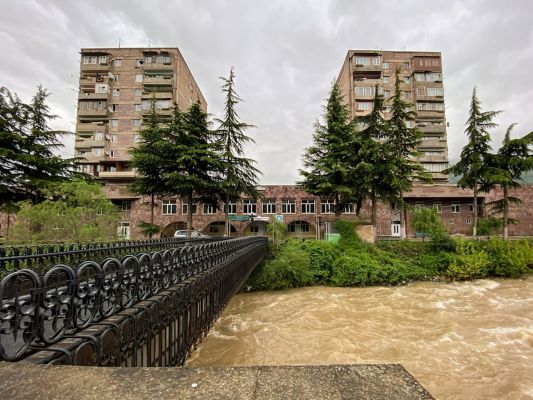Ijevan city has won a grant from the EU4Culture project and will receive EU funding to implement its Cultural Development Strategy

The city of Ijevan has won the EU4Culture project competition and will receive a grant of up to 300,000 euros from the European Union to implement the city’s Cultural Development Strategy. The official awards ceremony took place in the office of the Mayor of Ijevan community Arthur Chagharyan with the Team leader of the EU4Culture project Anatoli Beifert, the National Coordinator and the representatives of the Ijevan team.
In the previous stage of the project, the cities of Ijevan, Sevan and Charentsavan received an EU grant of 30,000 euros to promote the cultural development of these cities and prepare cultural development strategies. Following the evaluation of the final document, the town of Ijevan will receive 300,000 euros of funding to implement the developed strategy.
The main approaches to the cultural strategy of the city of Ijevan are decentralized cultural development and focus on Ijevan settlements, as well as the development of creative and proactive thinking among community residents. The strategy aims to build a solid and cooperative cultural field in the extended community of Ijevan by promoting the development of the cultural economy and the preservation of cultural heritage.
In addition, the EU4Culture program will continue cooperating with the three cities above, supporting capacity building and training programs.
“Considering local priorities and existing potential, the cities will develop a sustainable ecosystem for the cultural and creative industries. Supported by EU4Culture, the cities will learn how to use the full potential of a city for global outreach and international cultural cooperation as well as how to make a city a frontrunner for Cultural Leadership and Creative Transformation,” said Dr Anatoli Beifert, Team Leader of the EU4Culture project. EU4Culture is funded by the European Union to support culture and the creative sector with a special focus on non-capital cities and towns in the Eastern Partnership Countries. The project is implemented by Goethe Institut (lead), Czech Centres, Danish Cultural Institute and Institut Français de Géorgie.